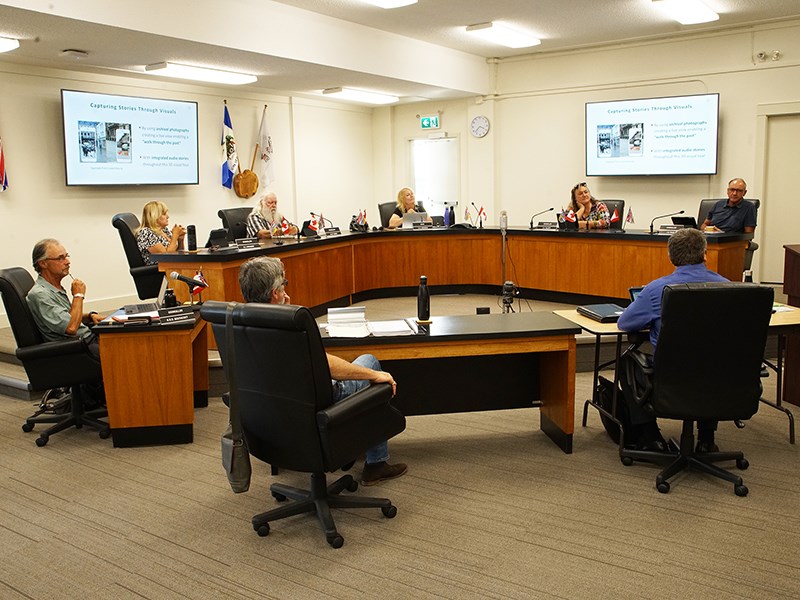City of Powell River Council will give consideration to having builders meet BC Energy Step Code requirements sooner than mandated.
At the August 18 committee of the whole meeting, councillors heard a presentation from sustainability planner Ana Lukyanova, who presented three options for step code requirements starting in January 2021 for new building construction.
Lukyanova said the step code is a voluntary provincial standard put in place by the province in 2017. She said it is part of the BC Building Code and establishes a series of measurable, performance-based energy efficiency requirements for new buildings that are higher than what the province currently has under the code. It is voluntary for local governments to adopt but will become mandated in 2022.
“In the meantime, local governments are encouraged to step-up their requirements to get builders ready for the coming regulations,” said Lukyanova.
She said the step code is a new performance-based building standard that sets energy efficient requirements for new construction.
What the step code will require is builders working with a certified energy advisor (CAE), who is a certified professional registered through Natural Resources Canada, to deliver that service.
The CAE will develop a computer model of the building, considering all factors and determining what step the building will be in the step code. This occurs before the building permit stage, ensuring it complies with the required step of code. Air tightness testing is performed by the CEA mid-construction and prior to occupancy.
Lukyanova said there are differences for part three and part nine buildings, which are large buildings and small buildings, such as single family homes, respectively. The steps go from one to five, with five being the most energy efficient.
Lukyanova said step two is 10 per cent more energy efficient than step one and step three is 20 per cent more efficient than step two. She said the province is moving toward step five, which is net-zero-ready for new construction, by 2032. By 2022, step three will be required for new construction for part nine buildings, said Lukyanova, and part three buildings will need to be built to a step two standard.
Lukyanova said the big question is how much does this cost. She said the province has done extensive work and it has shown that for the lower steps, up to step three, the cost increase is less than two per cent over the current standard. She said this is on the total of the construction cost.
Lukyanova said a breakfast was held for local builders prior to COVID-19 and a survey was taken. She said results were fairly positive, with 84 per cent of respondents expressing support for phased in regulations. Of those in attendance, 68 per cent indicated local builders can meet step two requirements in the next one to two years.
Lukyanova said the step code is energy source neutral, so it only concerns itself with how tight and well insulated the structure is, but doesn’t take into account the energy source to heat the home. She said, however, that greenhouse gases will determine what the footprint is. According to her report to the committee, Lukyanova outlined that an electrically heated home at step one emits dramatically less carbon than a gas-heated home at step five.
Lukyanova said options in the report presented to councillors regarding implementation of the step code are focused on the lower steps. She said all options presented were scheduled to start January 1, 2021, to allow builders and the building department the time to put the processes in place.
Committee chair and councillor CaroleAnn Leishman said building is part of her day job and that the company she works for has been working with CEAs in its Vancouver Island construction since 2006. She said the step code is just an unknown for builders who haven’t used it before.
“It’s not an onerous thing at all,” said Leishman. “It’s where we have to go because all of the buildings we are building right now are going to be emitting how much carbon they are built for for the next 75 years. The sooner we can get on board with this, the better.”
Leishman recommended council consider an option that part three and nine buildings be built to step two standard, or step one with low-carbon heating systems, starting on January 1, 2021.
“It’s only giving a year,” said Leishman. “In January 2022 the province is mandating everyone will have to build to step three.”
After some discussion, councillors voted to direct staff to prepare amendments to City of Powell River’s building bylaw that establish step code requirements of step two, or step one with low carbon heating systems, starting on January 1, 2021.



